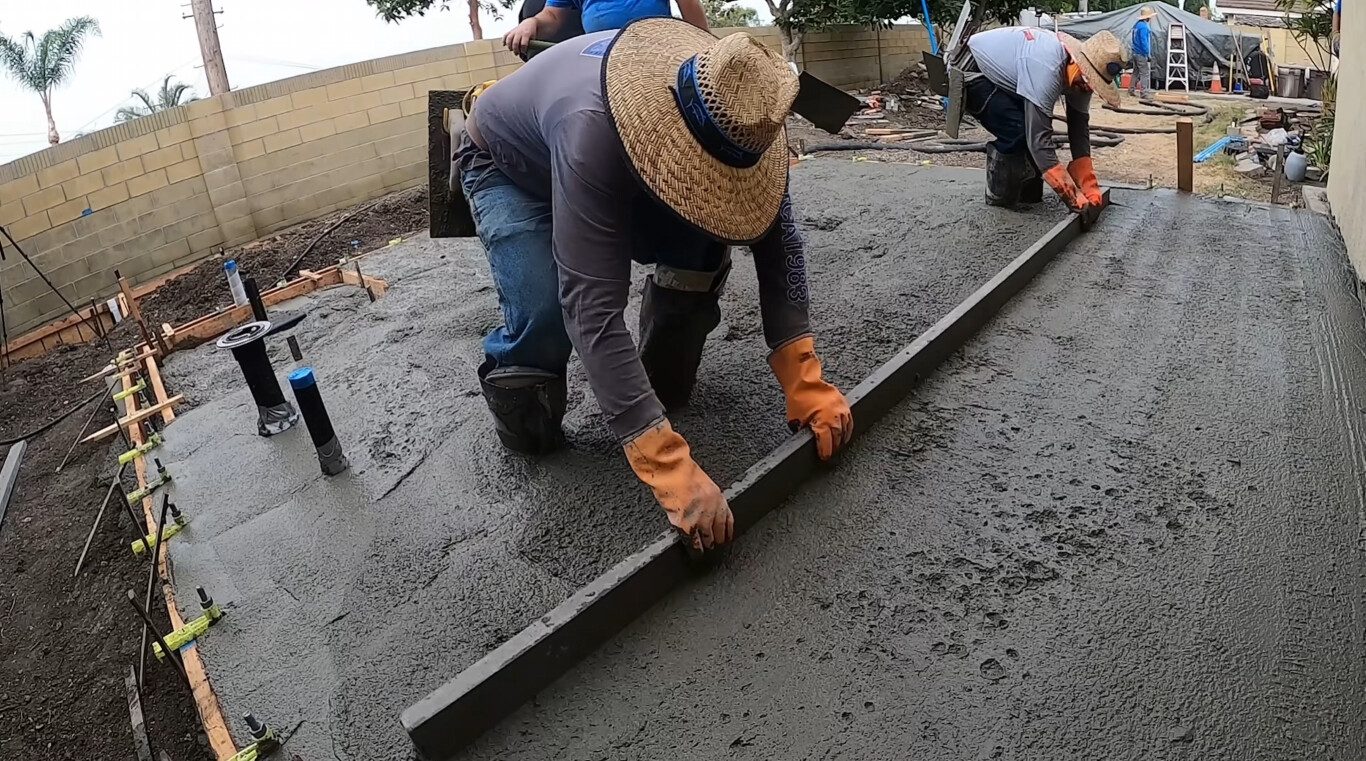Concrete Slabs & Flatwork
Reliable flat concrete surfaces for any residential or commercial application you need.

What is Concrete Flatwork
Flatwork is the general term for any horizontal concrete surface. This includes everything from basic utility slabs to finished floors and work areas. While driveways and patios are types of flatwork, the term typically refers to functional concrete slabs like shop floors, shed foundations, RV pads, or equipment areas.
These projects focus on durability and function rather than decorative appeal. You need a solid, level surface that can handle weight and use without cracking or settling. Proper installation matters just as much here as it does for visible areas, because a failed slab means costly repairs or replacement later.
In Whittier, we pour concrete slabs for all kinds of residential and commercial needs. Homeowners need RV parking pads, workshop floors, storage shed foundations, and equipment pads. Commercial clients need loading areas, storage yards, and utility pads. Each application has specific requirements, and we size and reinforce the concrete appropriately for your intended use.
Common Flatwork Applications
Concrete slabs serve countless purposes around your property. Here are some of the most common flatwork projects we handle for Whittier area homes and businesses:
Residential Flatwork Projects:
- •RV and boat parking pads: Heavy-duty slabs sized and reinforced to support recreational vehicles year-round.
- •Shed and workshop foundations: Level, stable bases for storage buildings, workshops, and garden structures.
- •Equipment pads: Concrete platforms for air conditioner units, generators, pool equipment, and hot tubs.
- •Side yard access: Poured slabs that create clean, mud-free paths to gates and utility areas.
- •Basketball and sports courts: Flat, smooth surfaces perfect for recreational activities.
Commercial Flatwork Projects:
- •Loading and unloading areas: Heavy-duty concrete designed to handle trucks and forklifts.
- •Storage yards: Large flat areas for equipment, material storage, or vehicle parking.
- •Warehouse floors: Industrial-strength slabs built to withstand constant traffic and heavy loads.
Each of these applications requires different specifications for thickness, reinforcement, and finish. We evaluate your needs and design a slab that performs well for your specific use case. Using the right approach from the start saves you money and prevents problems down the road.
How We Build Strong, Long-Lasting Slabs
A concrete slab seems simple, but proper installation requires attention to detail at every step. The ground preparation matters most. We excavate to the right depth, remove unstable soil, and create a compacted gravel base that drains well and resists settling. This foundation work determines how well your slab performs for decades to come.
Thickness and reinforcement depend on what you are using the slab for. A basic equipment pad might only need 4 inches of concrete, while an RV parking area should be 6 inches or more. We add wire mesh or rebar based on the load requirements and soil conditions. These decisions are not arbitrary, they are based on engineering principles and local building codes.
The concrete mix matters too. We specify the right strength for your application. Higher strength costs more but is necessary for areas that see heavy loads or frequent traffic. For basic utility slabs, standard residential-grade concrete works fine. We match the material to the job rather than using a one-size-fits-all approach.
Finishing and curing complete the process. Most flatwork gets a simple broom finish for traction, though smooth troweled finishes work for indoor slabs or areas where you need to roll carts or equipment easily. Proper curing ensures the concrete reaches full strength. We protect fresh slabs from rapid drying and temperature extremes during the critical first week after pouring.
